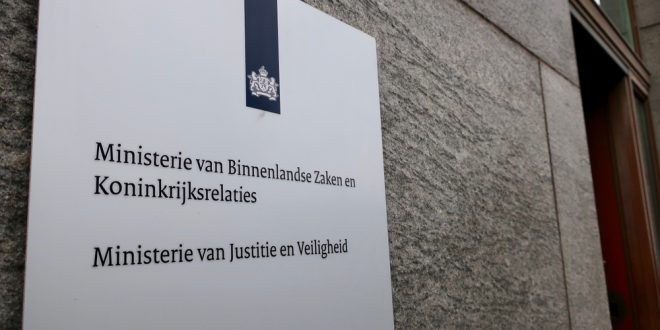Franc Weerwind, Legal Protection Minister of the Netherlands, has informed the President of the House of Representatives about his intentions going forward in regards to the upcoming evaluation of the country’s Remote Gambling Act (KOA) taking place in October.
The letter to Martin Bosma is a follow up to Weerwind’s previous alert on failing player protection measures of the Remote Gambling Act (KOA) highlighted in his letter from December 21, 2023.
Past talks
In the December communiqué, Weerwind brought forward an investigation by the Dutch Gambling Authority Kansspelautoriteit (KSA) into the duty of care by providers which established that there is a “cause for concern about the protection of vulnerable players”.
The Legal Protection Minister asserted that this alone meant that the existing online gambling regime first enforced in 2021 is structured with “a high level of abstraction” that pushes player protection responsibilities into the background rather than front and centre.
Loss limits and player protection
The need for player protection enhancements were first flagged by the KSA and brought forward to the Dutch Ministry of Justice in September after a lengthy probe into operator due diligence practices.
Measures to enhance ‘vulnerability protection’, as detailed in the December brief – informed by the KSA and Dutch public health specialists – endorsed monthly player loss limits of €150 for people between 18 and 23 of age, and a €350 loss limit in conjunction with additional financial risk checks for those aged 24 and over, while also giving individuals the option to negotiate these limits with KOA-licensed operators.
However, this motion has been opposed by ChristenUnie (CU) leader Mirjam Bikker who has instead called for a ‘universal loss limit’ across all 27 Dutch licence holders “without the possibility of offering customers an increase”.
The CU is expected to soon come to the table with its own countermeasures to Weerwind’s proposal, having threatened with cross-party support for its plans.

A consultation was recently launched by the Minister of Justice and Security Dilan Yeşilgöz-Zegerius into her colleague Weerwind’s €150 and €350 limits proposal in order “to standardise and clarify setting and adjusting gambling limits”. Public feedback will remain open until April 3, 2024.
Old problem, new vision
In his latest letter made public last week, Weerwind brought more details around his collaboration with Conny Helder, Head of the Dutch Ministry of Health, Welfare and Sport (VWS), and what to expect from the country-wide ‘addiction prevention work agenda’.
The cooperation between Weerwind’s Justice Ministry and the VWS is a beneficiary of the Addiction Prevention Fund (VPF), which funds the anti-addiction agenda by financing expertise, research and awareness.
One of Weerwind’s latest proposals to include on the agenda – also advised by the National Rapporteur on Addictions for the Dutch Government – is to pave the way for additional funding to establish a specialised centre for the prevention of gambling addiction, such as the Alcohol Expertise Centre at the Dutch Trimbos Institute.
The new organisation would bundle existing knowledge on the risks of gambling with the expertise of involved professionals like researchers, healthcare professionals and prevention staff.
“A centre of expertise can play an important role in improving government policy on addiction prevention in gambling,” Weerwind added, also stating that it must be ensured that such a centre operates independently of any gambling corporate interests.
The letter officially addresses the Trimbos Institute and requests plans for setting up the new institution to be brought forward soon, with Weerwind aiming to open its doors “in the first half of 2024”.
“With the arrival of a centre of expertise, I expect professionals to have access to better and in one place validated information in the long run,” Weerwind added.
In addition, it seems that the Legal Protection Minister wants to make 2024 a pivotal year for raising gambling harm awareness among the Dutch population.
The first quarter of this year will see an evaluation by the KSA of the Loket Kansspel – the Dutch informational campaign on gambling harm reduction – after which it will be decided what additional measures can be taken to effectively expand its reach to not only those who are suffering from gambling problems, but also to recreational players.
Weerwind also wants extensive awareness campaigns but not at the expense of player safety. The Legal Minister highlighted that a 2021 enquiry revealed that this could have a reverse effect by making people more curious about online gambling, hence the abandonment of the initial plans.

“It is recommended to develop activities specifically aimed at the target group that needs to be made aware of the risks of gambling and to target the strategy on players within the age category of 18 to 23 years. On the basis of this advice, it will be examined in 2024 in which form awareness-raising activities can be further developed in a responsible manner,” the letter explained.
According to Weerwind, the targeted 18-23 age group represents 21% of online gamblers, and it should come as a priority for player protection due to an increased risk of ‘impulse gambling’ compared to older players.
Weerwind signed off by saying: “With the activities from the work agenda, the commitment is together with the State Secretary of VWS and the KSA to prevent gambling addiction as much as possible and to offer help with gambling addiction.”









